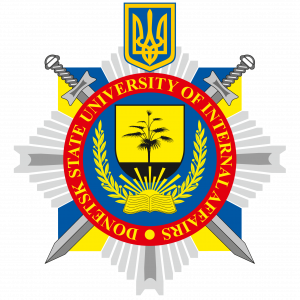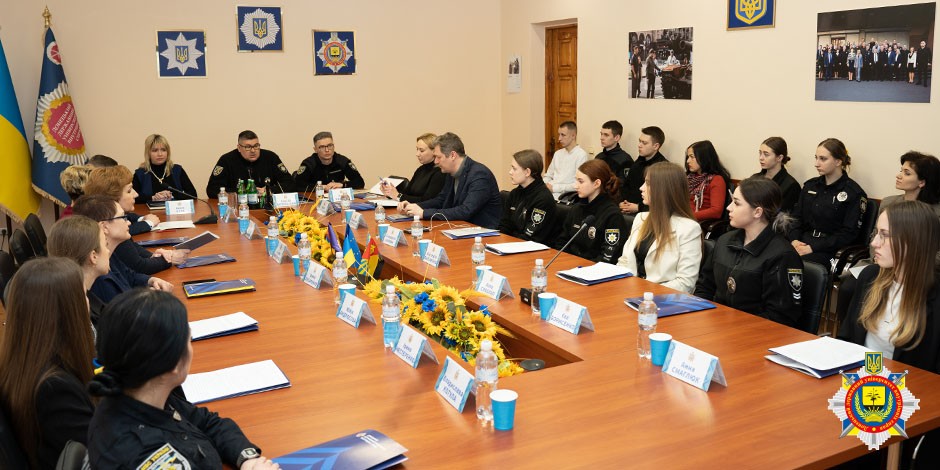118 representatives of educational and scientific institutions as part of the departmental education system of the Ministry of Internal Affairs of Ukraine, the Security Service of Ukraine, and the State Border Guard services, as well as students of classical universities and those studying legal subjects. took part in the 6TH All-Ukrainian scientific and practical cadet (student) conference `Law enforcement agencies: the defense of public order and constitutional freedoms in conditions of peace and martial law. The event was conducted in foreign languages.
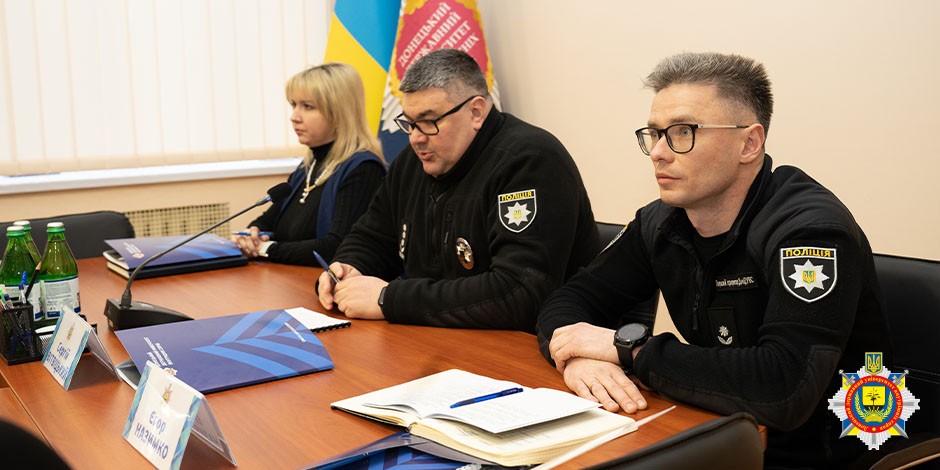
It was devoted to the discussion of topical issues of law enforcement training in conditions of martial law, international standards of law enforcement, problems of protecting constitutional human rights in police activities in the military conflict zone, and interaction between law enforcement agencies and the public in the field of public order ensuring under martial law.
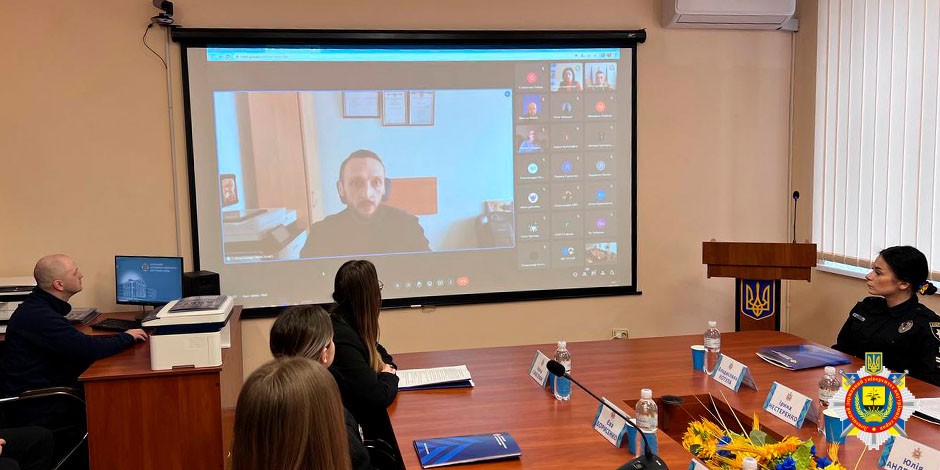
The conference started with a minute of silence in honor of the military personnel and law enforcement officers killed during the full-scale invasion.
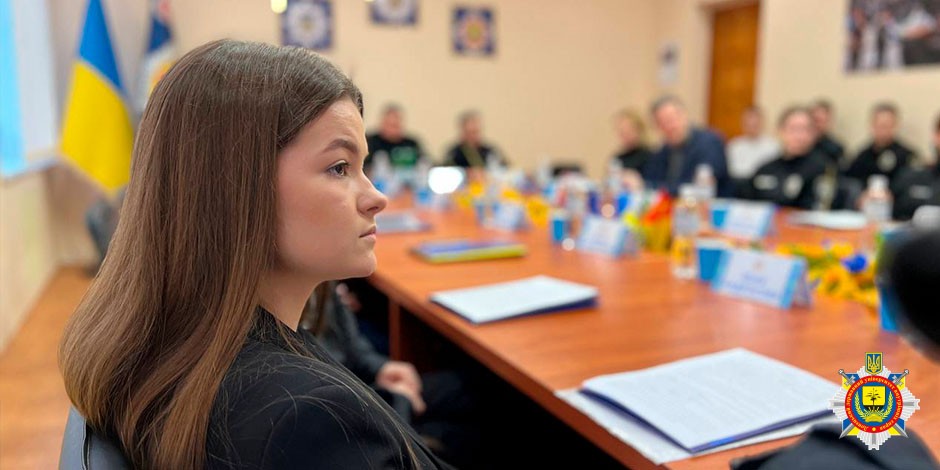
The rector of the DonSUIA Serhii Vitvitskyi opened the event. He noted that it was not a coincidence that the conference was held on the anniversary of Russia’s full-scale invasion of Ukraine because law enforcement officers currently face difficult tasks to protect the state, constitutional rights, and freedoms of citizens in wartime conditions. The rector emphasized that the DonSUIA provides training for law enforcement personnel with the appropriate professional skills and a high level of preparation in foreign language skills.
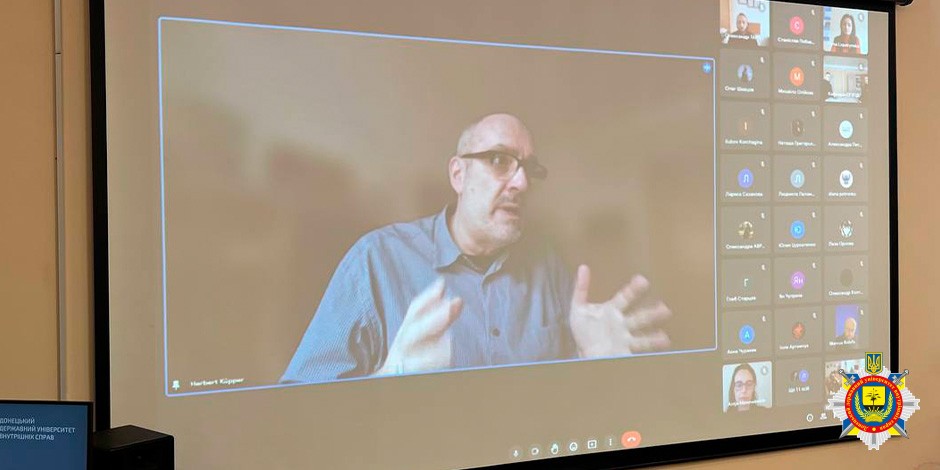
The head of the science and innovation unit of the Department of Education, Science and Sports of the Ministry of Internal Affairs of Ukraine Oleksandr Tarasenko noted that the formation of foreign language communicative competence of law enforcement officers and lawyers is an important component of training future specialists. He expressed the hope that the scientific event will bring significant practical results that will be implemented in the activities of law enforcement bodies in Ukraine.
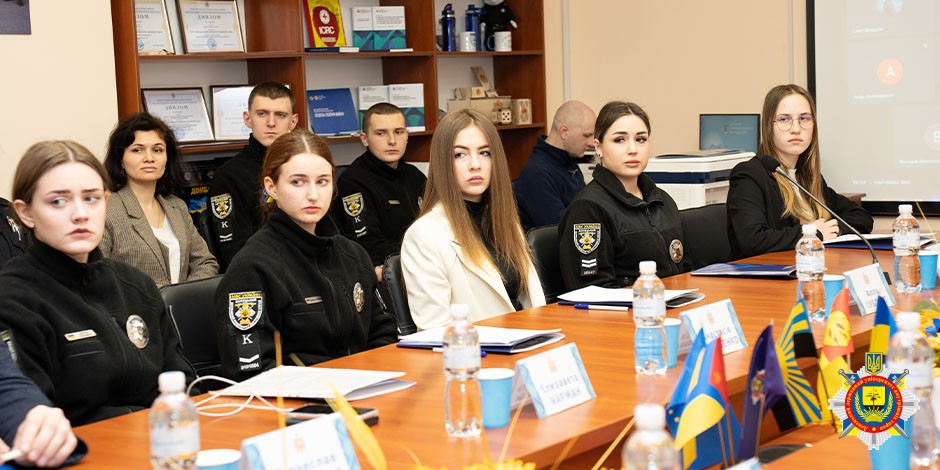
The managing director of the Regensburg Institute of East European Law and associate professor of the Department of Comparative Public Law of the András University of Budapest, Professor Herbert Kupper noted that the conference is a significant contribution to the European perspective of Ukraine, to the extension of Ukrainian-European scientific cooperation, to developing democratic future of Ukraine in a common European home.
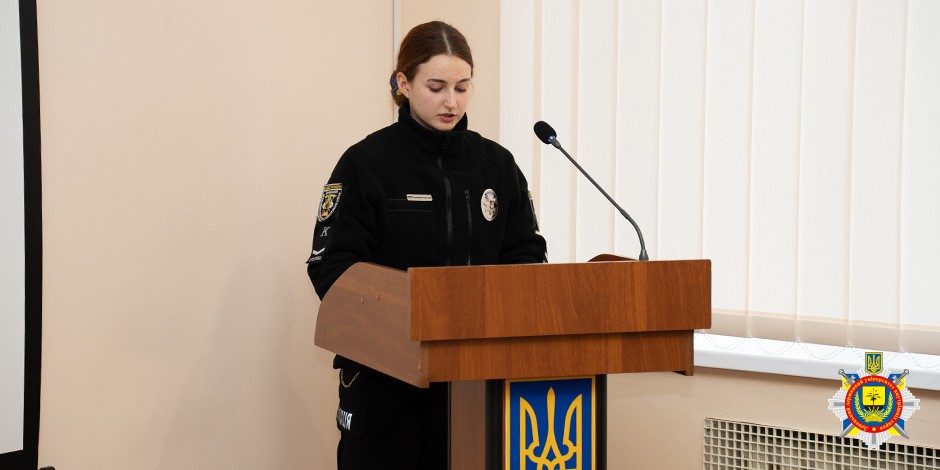
The adviser-trainer on the rule of law, the representative of the European Union Advisory Mission, Marcus Rolofs, emphasized the uniqueness of the experience of Ukraine, which is the only European democratic country in the last 80 years, in which martial law was introduced. This poses a difficult legal dilemma for the state authorities, law enforcement officers and legal scholars – maintaining a balance between the restriction of democratic freedoms during martial law and the preservation of the foundations of the rule of law. Mr. Rolofs also drew attention to the problem of the militarization of police and the priority of protecting the civilian population in wartime.
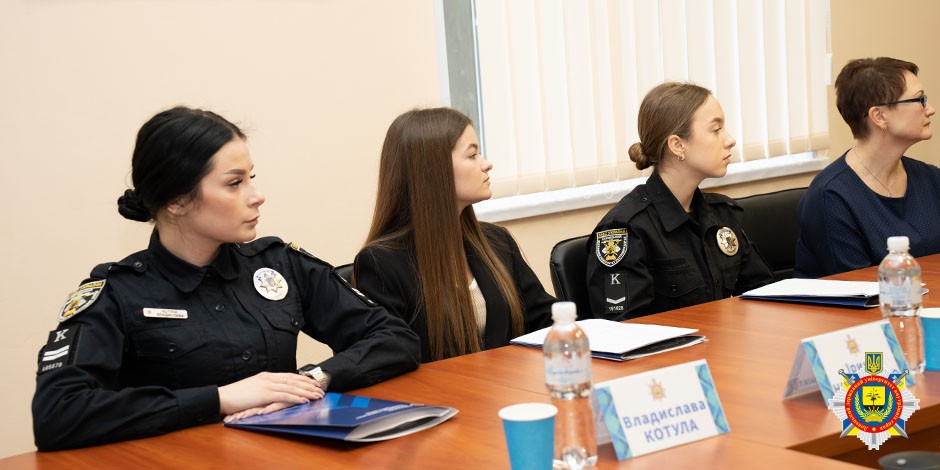
Modern youth actively participates in the protection and development of Ukraine. The extension of the state’s international relations requires proper foreign language skills, therefore legal experts and law enforcement officers must not only be specialists in their professional area but also master at least one foreign language and be ready for professional communication in foreign languages. Both in peacetime and in martial law, lawyers and police officers defend the rule of law in the state, so the University has been focusing on the formation of foreign language communicative competence of legal scholars and law enforcement officers for many years.


